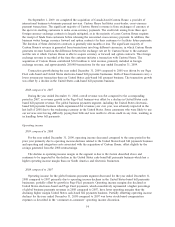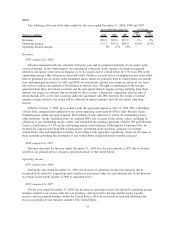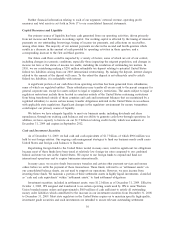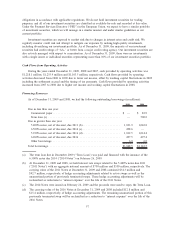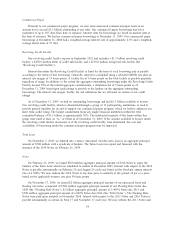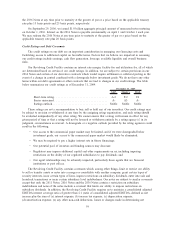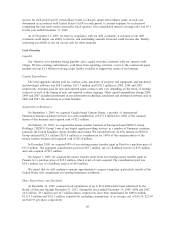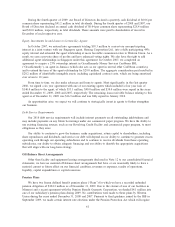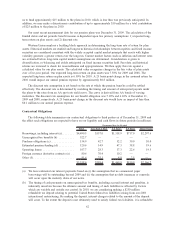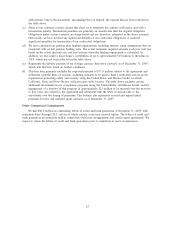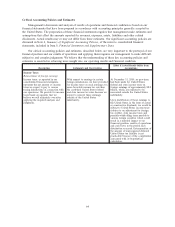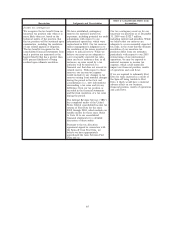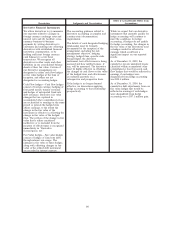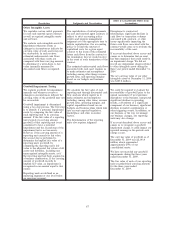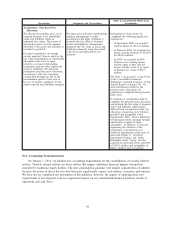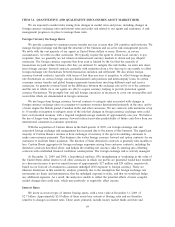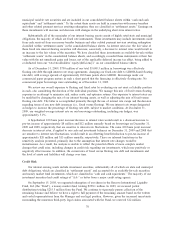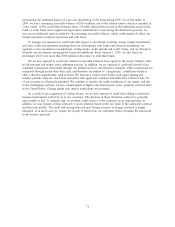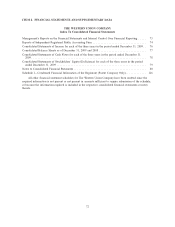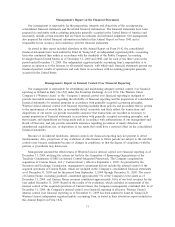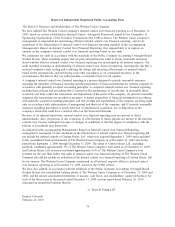Western Union 2009 Annual Report Download - page 78
Download and view the complete annual report
Please find page 78 of the 2009 Western Union annual report below. You can navigate through the pages in the report by either clicking on the pages listed below, or by using the keyword search tool below to find specific information within the annual report.
Critical Accounting Policies and Estimates
Management’s discussion and analysis of results of operations and financial condition is based on our
financial statements that have been prepared in accordance with accounting principles generally accepted in
the United States. The preparation of these financial statements requires that management make estimates and
assumptions that affect the amounts reported for revenues, expenses, assets, liabilities and other related
disclosures. Actual results may or may not differ from these estimates. Our significant accounting policies are
discussed in Note 2, Summary of Significant Accounting Policies, of the notes to consolidated financial
statements, included in Item 8, Financial Statements and Supplementary Data.
Our critical accounting policies and estimates, described below, are very important to the portrayal of our
financial position and our results of operations and applying them requires our management to make difficult,
subjective and complex judgments. We believe that the understanding of these key accounting policies and
estimates is essential in achieving more insight into our operating results and financial condition.
Description Judgments and Uncertainties
Effect if Actual Results Differ from
Assumptions
Income Taxes
Reinvestment of foreign earnings
Income taxes, as reported in our
consolidated financial statements,
represent the net amount of income
taxes we expect to pay to various
taxing jurisdictions in connection with
our operations. We provide for income
taxes based on amounts that we
believe we will ultimately owe after
applying the required analyses and
judgments.
With respect to earnings in certain
foreign jurisdictions, we have provided
for income taxes on such earnings at a
more favorable income tax rate than
the combined United States federal
and state income tax rates because we
expect to reinvest these earnings
outside of the United States
indefinitely.
At December 31, 2009, no provision
had been made for United States
federal and state income taxes on
foreign earnings of approximately $2.0
billion, which are expected to be
reinvested outside the United States
indefinitely.
Upon distribution of those earnings to
the United States in the form of actual
or constructive dividends, we would be
subject to United States income taxes
(subject to an adjustment for foreign
tax credits), state income taxes and
possible withholding taxes payable to
various foreign countries which could
result in a material impact to our
financial position, results of operations
and cash flows in the period such
distribution occurred. Determination of
the amount of unrecognized deferred
United States tax liability is not
practicable because of the complexities
associated with its hypothetical
calculation.
64


